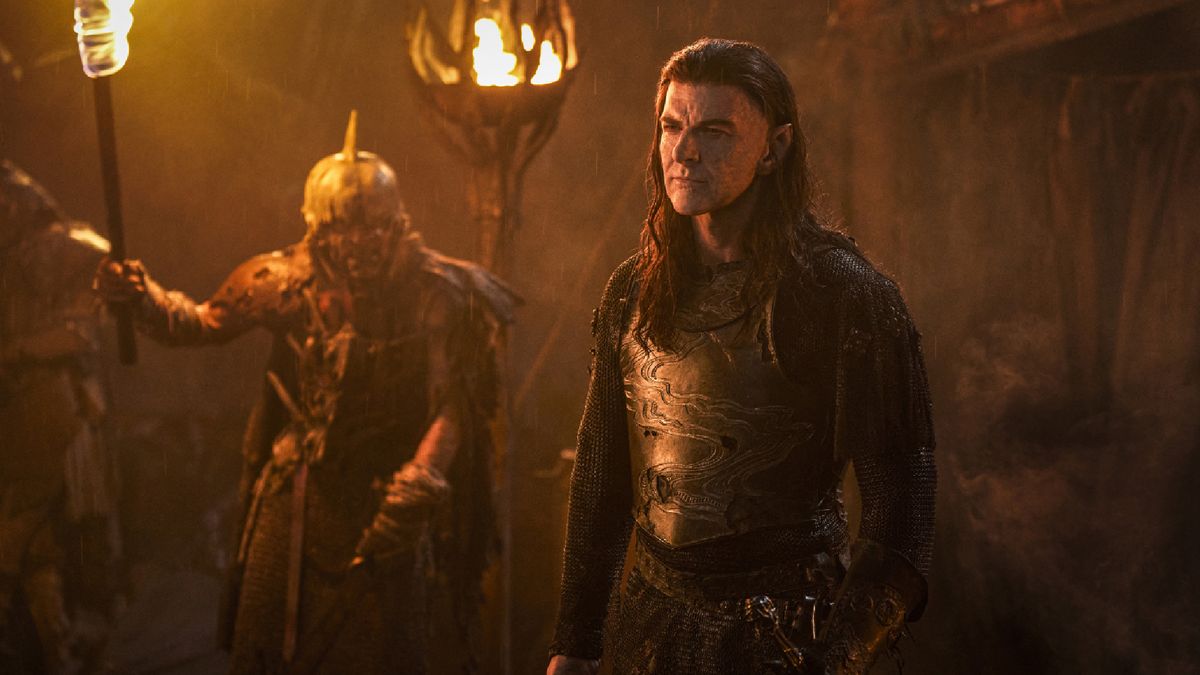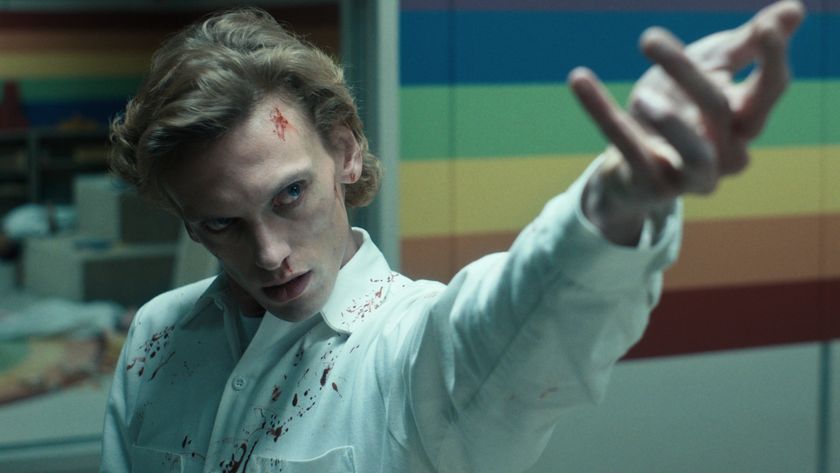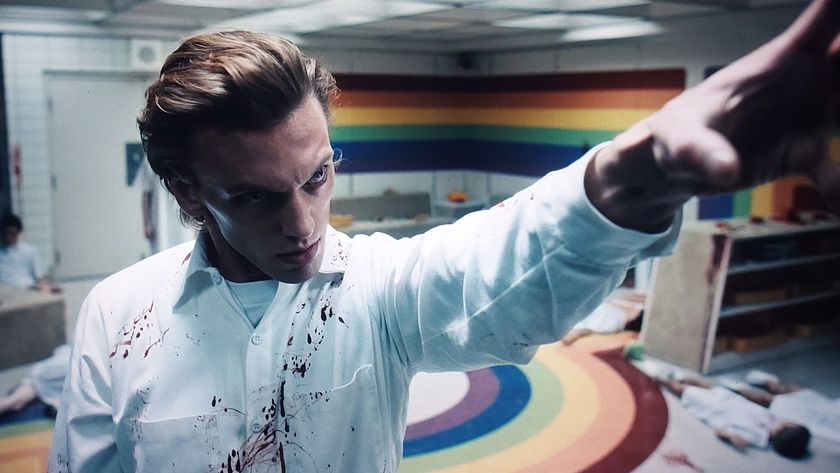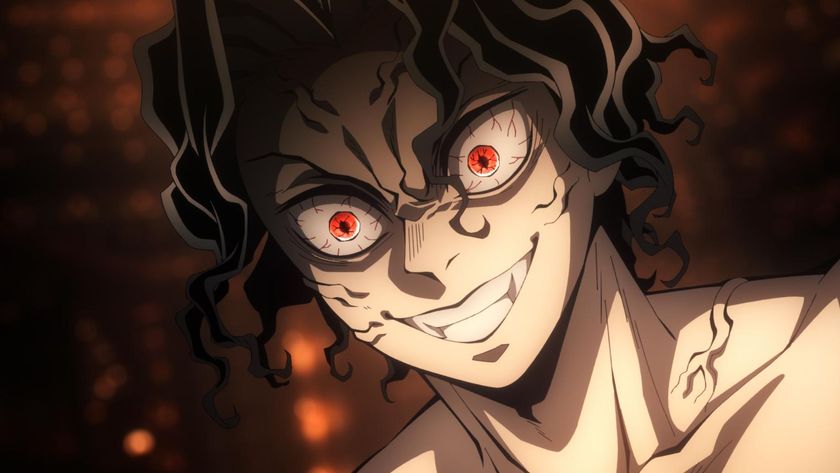Adar is The Rings of Power's best original character – and the season 2 finale just proved why
Opinion: The Rings of Power season 2 does justice to its best character – Adar

Warning: This feature contains major spoilers for The Rings of Power season 2 finale.
So far The Rings of Power has had mixed results with introducing new characters to Tolkien’s world. The show’s harfoot heroes are still meandering far away from the main plot, often acting as a light-hearted break between weightier scenes involving established characters like Sauron. Meanwhile Arondir was frustratingly sidelined this season. The biggest success by far is Adar (played by Joseph Mawle in season 1 and Sam Hazeldine in season 2), a new leader who slots organically into the power struggle between Middle-earth’s various factions.
Standing equal to the show’s other military commanders, Adar’s role is rooted in classic Tolkien themes, offering fresh insight into the Orcish perspective. He receives some of the most thought-provoking writing this season – including his tragic death in the finale. Mirroring the way Adar himself came to power, his orc “children” assassinate him and transfer their allegiance back to Sauron.
A worthy king for the Orcs
Thematically speaking, Adar embodies a recurring archetype in Tolkien’s work: A worthy king who wants what’s best for his people, positioned opposite a corrupt and power-hungry usurper. The most famous example is Aragorn, and we see something similar play out among the ruling classes of Númenór.
As one of the show’s main villains, Adar obviously isn’t a traditional version of this trope. His army attacks peaceful civilians, and his leadership style is hardly cozy. But he does genuinely care for the Orcs, portrayed as a more honorable antagonist than the chillingly manipulative Sauron.
We could guess from the start that Adar was doomed, because his goals represent a future that doesn’t come to pass – a world where Orcs forge a civilization in their own right, rather than living to enforce the Dark Lord’s rule. By killing Adar, the orcs sentence themselves to generations of cruel servitude. And that’s a key reason why Adar is such an effective character. His story is now complete, facilitating some important worldbuilding during the first two seasons – and then leaving the field open for Sauron to take center stage.
Above all, Adar’s arc creates a clever workaround for a controversial element of Tolkien’s lore: the inherently evil nature of the Orcs.
Sign up for the Total Film Newsletter
Bringing all the latest movie news, features, and reviews to your inbox
Sparking debate across other fantasy properties like Dungeons & Dragons, this concept has a troublesome political subtext, embracing the idea of a "savage" race that can be slaughtered without moral qualms. The evil nature of the Orcs is so foundational that when The Rings of Power briefly confirmed that Orcs can have children (and therefore form loving communities), it caused uproar among more conservative fans. Characterized as a sympathetic alternative to Sauron, Adar introduces the possibility of Orc redemption without rocking the boat too much.
Back in season 1, there’s a scene where Galadriel dismisses the Orcs as a rabble of slaves to Mordor. “Your kind was a mistake,” she tells Adar, vowing to “eradicate” every orc from the face of Middle-earth. Adar pushes back by saying that each orc has a name and a heart, and are just as worthy of a home as any other being. His words invite us to imagine what Middle-earth might look like if the orcs had a chance to settle and evolve as an independent culture. Maybe they’d mellow out. We’ll never know.
The tragedy of Adar’s backstory
The other side to Adar’s role is, of course, his connection to the Elves. Born as an Elf, he was corrupted into becoming one of the first Uruks during Morgoth’s rule, before joining Sauron and ultimately realizing he’d made a mistake. So his hatred of Sauron is personal, and there’s a lingering sense of tragedy to his relationship with Elvish culture. He knows he can’t go back, but he hasn’t fully let go either. His costume marries the dark palette and spiked armor of the orcs with an elvish silhouette, including a chestplate that calls back to the watery silks worn by elvish characters. And shortly before his death, we see him confront his former identity.
When Adar dons Galadriel’s Ring of Power, his scars heal and he returns to his original, Elvish appearance. But when Galadriel asks him for his Elvish name, he replies that it’s “a meaningless name. A name I was given." He now identifies solely as Adar, father of the orcs. He then does something notably impressive, surrendering the ring for strategic (and arguably moral) purposes. Suggesting that they form an alliance, he promises to withdraw his army to Mordor once Sauron is defeated. “Let this ring heal the rift between elf and orc,” he says. “Let us create a lasting peace in Middle-earth.”
This vision is snuffed out within 90 seconds, as a group of orcs arrive carrying a seemingly wounded Glûg, one of Adar’s lieutenants. When Adar bends to comfort him, Glûg pulls a dagger and stabs him in the stomach, quickly joined by the rest of his pals. The orcs have already decided to follow Sauron instead, viciously murdering their “father” before heading out to raze Eregion on Sauron’s orders.
So maybe Adar’s manifesto for Orcish peace was overly optimistic. He was too elvish to fully understand the Orcs’ motives, failing to realize that they’d prefer to follow a sadistic tyrant into endless war – even if that tyrant clearly doesn’t care about the orcs’ wellbeing. His plan was destined for failure, and that destiny was written into his role from episode one. Introduced with a two-season arc in mind, Adar had enough time to evolve as a sympathetic villain before dying at the perfect time for maximum emotional impact.
For more on the fantasy show, read our guide to The Rings of Power season 3.

Gavia Baker-Whitelaw is a critic and journalist specializing in geek culture, TV, and film. Previously a staff writer at the Daily Dot, she now freelances for a wide variety of outlets including TV Guide, Atlas Obscura, Inverse, Vulture and BBC radio. She also co-hosts the movie review podcast Overinvested.
Most Popular





